Nuts and seeds are some of the healthiest foods a person with type 2 diabetes can eat. They contain vitamins and minerals and are a perfect low carb snack. At one time, nuts and seeds were considered unhealthy due to their high fat content, but nutrition research has proven this line of thought to be inaccurate. Check out the health benefits of nuts and seeds and how to get more of these nutritious foods in your diet.
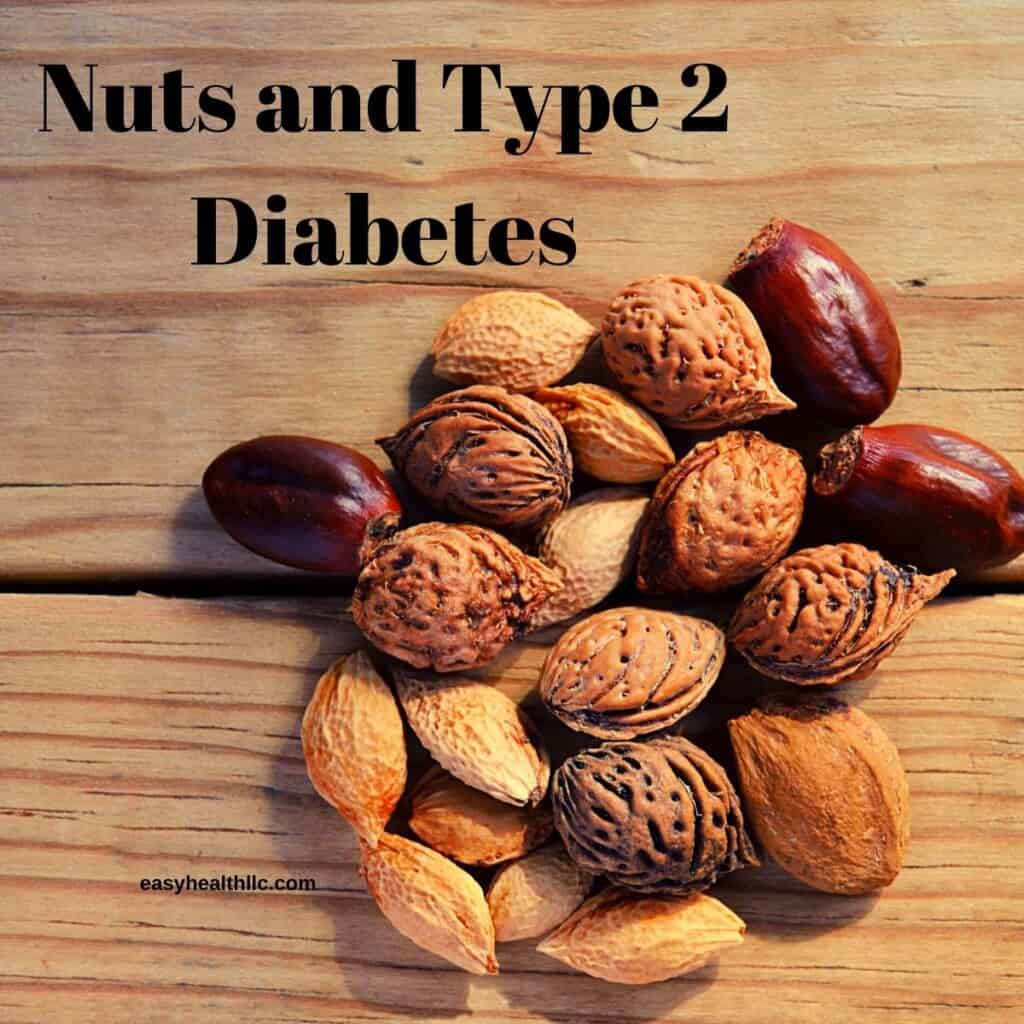
Jump to:
Benefits of Nuts and Seeds
Diabetes-
A recent study published in Circulation Research found a lower risk of heart disease and death in people with Type 2 diabetes who ate nuts. Researchers found that the people who ate tree nuts such as walnuts, almonds, Brazil nuts, hazelnuts and pistachios saw the most benefit in terms of reduced heart disease risk, as well as overall death risk.
If you have type 2 diabetes, a study showed eating two ounces of nuts daily as a replacement for carbohydrate foods improved both glycemic control and serum lipids in type 2 diabetes.
Heart Health-
Most nuts contain monounsaturated fats. Many nuts and seeds, including walnuts and flaxseed, are high in omega 3 fatty acids an anti-inflammatory which helps boost heart health. Almonds are rich in the antioxidant Vitamin C. These foods can also help lower LDL cholesterol when eaten in place of saturated and trans fats keeping blood vessels healthy. Nuts and seeds are salt free (unless added) and cholesterol free.
Research on nuts and heart disease showed those who ate one ounce of nuts five or more times per week had a 14% lower risk of cardiovascular disease and a 20% lower risk of coronary heart disease.
Nutrient Dense-
Nuts and seeds are nutrient dense foods and in particular high is fiber, calcium, potassium and magnesium. Not enough magnesium may lead to hypertension, diabetes, heart disease and depression.
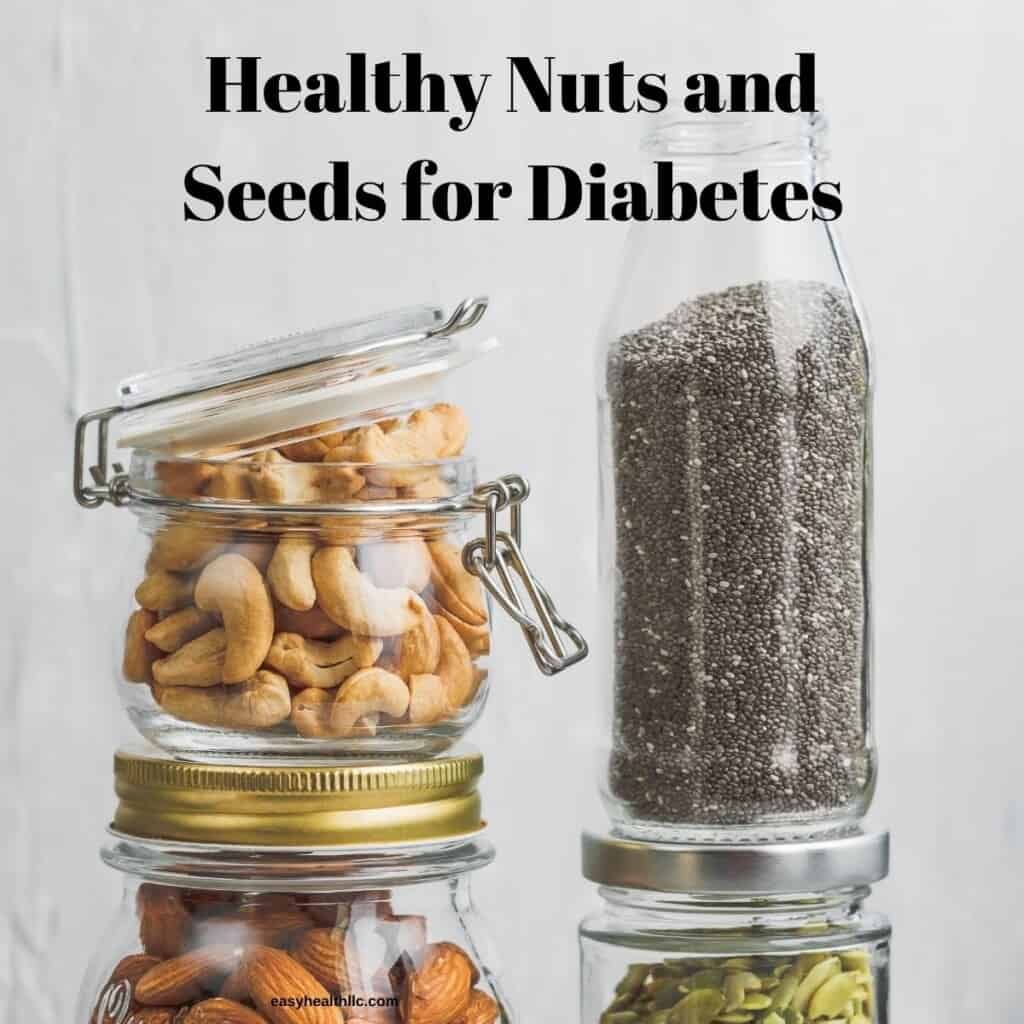
Weight Control-
According to research from the journal Obesity, subjects who consumed 2 servings of nuts per week are less likely to gain weight.
The American Journal of Clinical Nutrition study showed eating nuts more than 2 X per week did not cause a weight gain for the 8 year span of the study.
One study focused on the potential prebiotic properties of nuts and edible seeds and the idea that their consumption may help the prevention and the management of overweight and obesity.Weight gain prevention may occur through interaction with the gut microbiome.
List of Healthy Nuts and Seeds to Include in Your Diet
Almonds- serving size: 23 almonds
Flaxseeds (ground)- serving size: 1 Tablespoon
Hazelnuts- serving size: 21 hazelnuts
Peanuts-serving size: 28 peanuts
Pecans-serving size: 20 halves
Pistachios-serving size : about 49 kernels
Sunflower Seeds-serving size: ¼ cup
Walnuts-serving size 14 halves
Ways to Get More Nuts and Seeds in Your Diet Each Day
Remember to exercise portion control when adding nuts and seeds to a diet for type 2 diabetes. Talk with your Registered Dietitian or Certified Diabetes Educator to find out more about how to work these foods into your meal plan.
- Add sunflower seeds, chopped almonds, pecans or walnuts to cereals, salads or yogurt
- Add peanuts to stir fry recipes
- Add ground flaxseed, walnuts or pecans to pancake batter
- Add seeds to muffin or bread batters
- Choose bread and crackers with added seeds/nuts
- Instead of croutons on salads, use nuts or seeds
- Make a batch of trail mix to measure out portions to snack on during the week
- Add almonds to green beans or baked fish
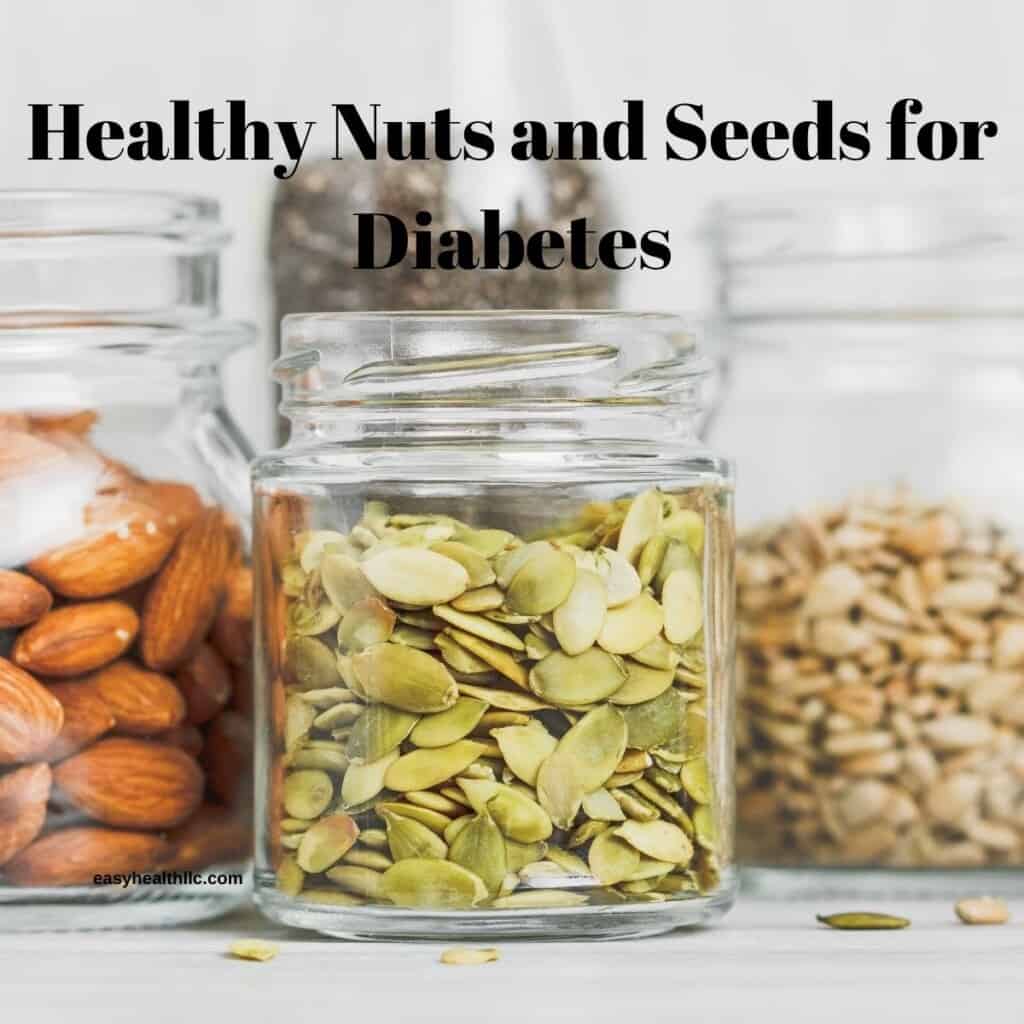
Frequently Asked Questions About Nuts and Seeds
Are peanuts good for diabetics?
The fat contained in nuts and seeds is considered to be a healthier type of fat. Note the studies listed above regarding whether nuts can cause weight gain.
You can get all the health benefits of nuts and seeds in butters- just in a more condensed form. Peanut butter is a family favorite.
Roasted nuts and seeds are often fried while dry roasted nuts usually contain excessive salt. Try raw, unsalted nuts for the most health benefits. Store shelled nuts and most seeds up to 4 months in refrigerator or 8 months in freezer.
Ways to lower the coat of nuts and seeds include buying in bulk (store extras in refrigerator or freezer), buying bags of broken nuts, buy directly from the farmer, shop around for the best deals and seasonal pricing.
Need Recipe Ideas?
Check out my recipes featuring nuts and seeds!

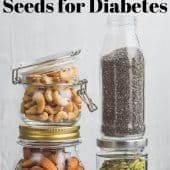
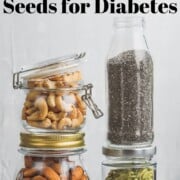
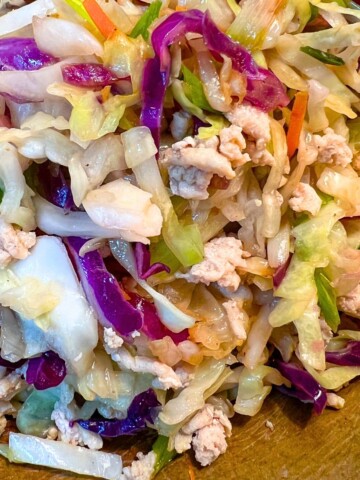
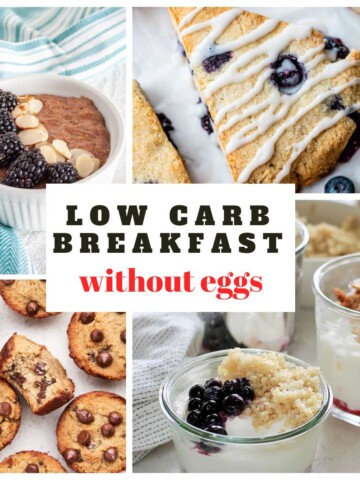
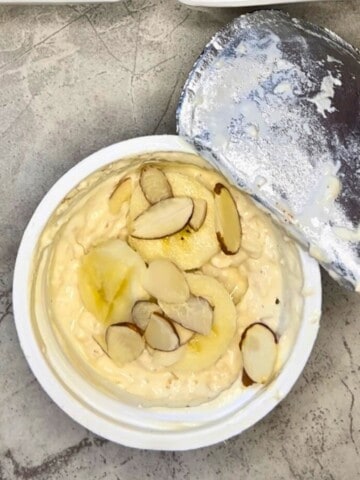
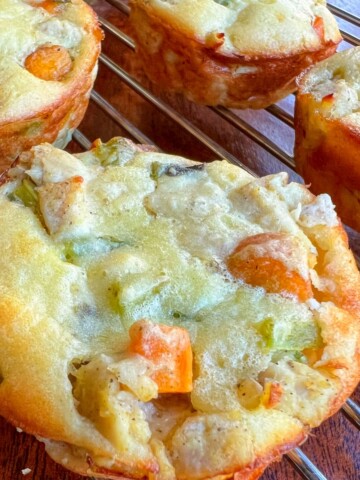
Comments
No Comments